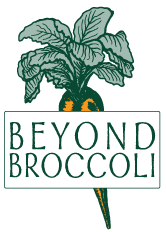
Last week following a presentation about eating disorders to a group of mental health professionals a participant stood up and shared that a relative of hers had just returned from eating disorder treatment and was overweight. What should she (the relative in recovery) do?
Each time I hear this question my heart sinks. We live in a culture where the primary metric for health is weight. If someone does not meet clinical criteria for a “healthy” weight range she is encouraged by everyone around her, often including her health providers, to “diet.” It astounds me that even when a person has struggled with a full-blown eating disorder the focus remains on weight, and too often “dieting” is the recommendation. Keep in mind that a “diet” for someone with an eating disorder is like a drink for someone addicted to alcohol.
Responding to the question about what to do next is difficult for many reasons. First, I know nothing about this person’s eating disorder journey – how it began, the form it took, the treatment she received, current support, etc. What I do know is that no matter what her journey looks like, working with a combination of outpatient therapist and dietitian with training and experience in eating disorders is the ideal next step. I’d like to say this type of follow up care is essential based on the many stories I’ve heard from my eating disorder clients about working with professionals not experienced with eating disorders. Unfortunately the reality of living in areas where specialized services are not available makes this an ideal scenario rather than an essential one.
The long term nutrition goal is to create a positive relationship with food (body and emotions too but these are more in the psychotherapy realm). Here are my top 3 next steps for nutrition in eating disorder recovery after some type of residential or inpatient treatment:
- Seek support related to a more intuitive and mindful approach to eating. There are several books and websites on these topics. For Intuitive Eating resources Evelyn Tribole’s website is great http://www.evelyntribole.com/resources/intuitive-eating-articles-studies-support-groups/10-principles-of-intuitive-eating and for Mindful Eating guidance Michelle May, MD has some really good resources http://amihungry.com/resources/about-the-mindful-eating-cycle/
- Be aware of any type of food restriction – especially if your eating disorder includes binge eating. This is one of the most counter-intuitive aspects of eating disorder recovery for those who struggle with binge eating. This is also commonly ignored among dietitians and other health professionals not experienced in eating disorder treatment. The focus is too often on the binge rather than the food restriction that can begin a cycle of disordered eating. Skipping meals and snacks, avoiding certain foods or food groups, only allowing yourself to eat at certain times, or arbitrarily determining portions sizes rather than relying on your body to tell you what and how much you need, are all forms of food restriction that can be harmful in eating disorder recovery.
- Watch for “always” and “never” thoughts and statements. These words are red flags for “black-and-white” “all-or-nothing” types of thinking that support disordered eating behaviors of all kinds. These words are rarely true when it comes to food and can help you identify struggles that lurk beneath the surface during your recovery journey.
There are many more issues to address in support of long-term, sustainable eating disorder recovery and a positive relationship with food. If you are overweight as you face the next stage of your recovery these steps can help you stay focused on health and well-being while you support your body’s return to a healthy weight range tailored to your individual needs.


